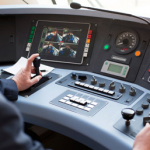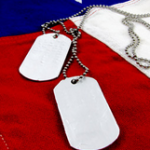When U.S. businesses hire military veterans, the workforce gains invaluable skills.
Top 10 Jobs for Military Veterans
Training and development manager
A career as a corporate training and development manager is well-suited to veterans based on the number of available positions in the job market and the skills of former armed services personnel. The median salary for a training and development manager is $89,170 per year.
Ship engineer
Ship engineers service and operate motors, generators, pumps and other machines, along with managing technical crew in the transportation and shipbuilding industries. Huntington Ingalls (HII), which makes ships for the U.S. Navy and Coast Guard, provides opportunities for veterans to continue working directly with the military. The position pays a median salary of $79,920.
Telecommunications equipment manager
Telecommunications equipment managers maintain inventories of hardware and monitor communications systems. The position’s median salary is $54,710, according to CareerCast.com.
Software developer
Intel recently launched a program that helps veterans further develop their skills in information technology, according toCareerCast.com. The position pays a median salary of $90,530.
Administrative services manager
Administrative services managers oversee their organizations’ support services, records and facilities. The position pays a median salary of $77,890, according to CareerCast.com.
Industrial engineering technician
Industrial engineering technicians, whose median salary is $48,210, manage operational layouts and production for energy and manufacturing companies.
Industrial production manager
Industrial production managers direct daily operations of manufacturing companies. The position’s median salary is $87,160
Construction program manager
Construction companies recruit program managers from the U.S. Army Engineers, according to CareerCast.com.aling. The position pays a median salary of $83,860.
Train engineer and operator
A train engineer typically operates a locomotive or transit rail and earns a median salary of $46,100.
Heavy and tractor-trailer truck driver
Experts expect that between 2012 and 2020, the trucking industry will create more than 330,000 jobs. A trucker earns a median salary of $37,770.
The above is from: http://www.cbsnews.com/2300-505125_162-10015820.html



